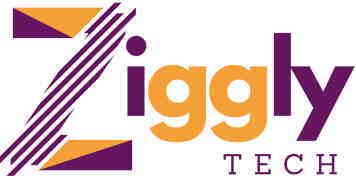As of late, the layout of our workplaces has been at the centre of many debates. While some praise the collaborative energy of open-plan spaces, others advocate for the privacy and efficiency of modular offices. Which is best for productivity and well-being? Let’s explore the pros and cons of both. Just like choosing games at Bizzo Casino, office design needs thought. Each choice has pros and cons.
The Attraction of Open-Plan Offices
Open-plan offices have become synonymous with modernity and teamwork. Popularized by tech giants and startups, they promise a bustling environment of creativity and synergy.
Pros:
- Collaboration Boost: The absence of physical barriers encourages team members to communicate and collaborate spontaneously.
- Flexibility: These spaces can be easily reconfigured to cater to different team sizes and needs.
- Transparency: Everyone is visible, promoting a sense of equality and shared purpose.
However, not all that glitters is gold. The open-plan design has also faced its fair share of criticism.
Cons:
- Noise Distractions: Constant chatter can make it hard to focus on tasks that require concentration.
- Lack of Privacy: Personal conversations or sensitive discussions are tricky in an open setting.
- Stress: Being always “on display” can make some employees feel under constant scrutiny, leading to stress.
The Rise of Modular Offices
In contrast, modular offices are making a comeback. They offer private spaces or pods that can be tailored to individual or team needs.
Pros:
- Focus: With fewer distractions, employees can concentrate better, making them more productive.
- Privacy: Personal or confidential discussions can happen without the entire office overhearing.
- Personalization: Employees can set up their pods in a way that makes them most comfortable, boosting morale.
Yet, modular offices aren’t without their shortcomings.
Cons:
- Isolation: The segmented nature can sometimes create silos, limiting spontaneous teamwork.
- Space Consumption: Modular setups might require more space, making them unsuitable for smaller offices.
- Cost: Setting up individual modules might be costlier than an open layout.
Meeting Rooms Matter
Having a place to chat is key. Open offices might have more space, but do they have private rooms?
Good Things:
- Flexible: Meeting rooms can change for different groups.
- Tech Ready: Most have screens and speakers ready for presentations.
- Away from Desks: A new space can give fresh ideas.
Bad Things:
- Booking: Popular rooms get taken fast.
- Distractions: If walls are thin, noise can enter.
- Space Eater: They can take a lot of room.
Where’s My Stuff? Storage Solutions
People have things. Papers, cups, and more. Where to put them?
Good Things:
- Clean Desks: With storage, desks stay neat.
- Less Lost Items: With a spot for everything, fewer things get lost.
- Personal Touch: A personal storage lets people add a little “them” to the office.
Bad Things:
- Forgetting: Out of sight can mean out of mind.
- Space Again: Storage uses up space.
- Costs Money: Good storage isn’t always cheap.
Break Areas: Not Just For Coffee
Breaks are needed. A good spot to relax helps a lot.
Good Things:
- Refreshed Minds: A short break can give new energy.
- Casual Talks: Some of the best ideas come from a chat by the coffee machine.
- Food & Drink: Hungry? Thirsty? Sorted.
Bad Things:
- Too Long Breaks: Some might take too many breaks.
- Noise: If close to desks, noise can be a problem.
- Mess: If people don’t clean, it’s not fun.
The best offices think of their workers’ needs and feelings. Making the right choice helps work and well-being.
The Bizzo Casino Parallel
Interestingly, the debate between open-plan and modular offices can be likened to choices at Bizzo Casino. Just as one would choose between a lively game room and a private poker table, businesses must decide on the office layout that best suits their team’s needs. The goal is always to ensure that everyone involved has the best experience possible.
Balancing the Scales
Many modern workplaces are recognizing that a one-size-fits-all approach doesn’t work. Instead, they are blending the best of both worlds. By offering a mix of open spaces for collaboration and modular areas for focused work, they aim to cater to varied tasks and employee preferences. This hybrid approach seems to be the middle ground in the ongoing debate.
Conclusion: Tailoring Spaces to Needs
Every company, like every individual, is unique. The best office layout depends on the nature of work, company culture, and employee preferences. While an advertising agency might thrive in an open-plan setting, a law firm might prefer the discretion of modular offices.
The key lies in understanding what your team needs to be at its best. Just as one wouldn’t play slots when they prefer poker at Bizzo Casino, forcing a particular office design on a team that doesn’t resonate with it can be counterproductive.
In the end, whether it’s the openness of collaboration or the solitude of individual workspaces, ensuring productivity and well-being is the ultimate goal.

0 comments